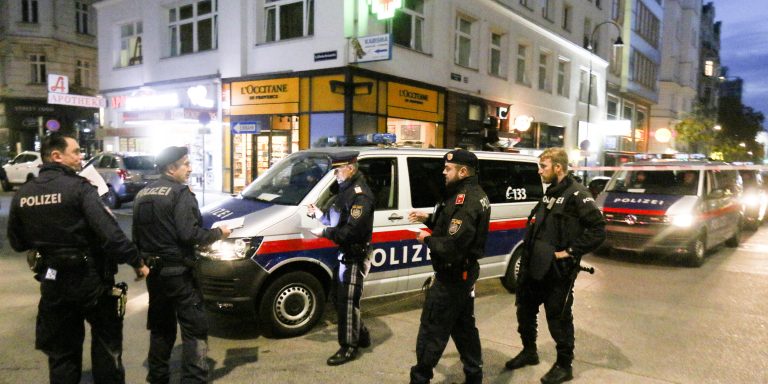INTELBRIEF
November 3, 2020
IntelBrief: Terrorist Attacks in Vienna Rock Austrian Capital

Bottom Line Up Front
- A terrorist attack rocked Vienna on Monday night, hours before the Austrian capital was about to enter another COVID-19 related lockdown.
- Multiple crime scenes remain under investigation by law enforcement and Austrian security services.
- European leaders, including British Prime Minister Boris Johnson and French President Emmanuel Macron, joined in condemning the attack.
- The attack bore all the hallmarks of an ISIS operation, evoking scenes of the Paris attack of November 2015 and Brussels attack of March 2016.
A coordinated terrorist attack featuring multiple gunmen firing rifles and handguns rocked Vienna on Monday evening, just hours before the Austrian capital was scheduled to enter another COVID-19 related lockdown. Four people were killed and more than fifteen injured, including a policeman. One of the attackers was reportedly shot and killed by police, in what Austrian authorities are labeling a terrorist attack. Several rumors initially circulated online, including of hostages being held at a Hilton hotel and another at a Japanese sushi restaurant. Six separate crime scenes remain under investigation by law enforcement and the security services. Austrian authorities warned civilians to avoid central Vienna, especially public transportation, as anti-terror squads launched a large-scale security operation to identify and detain the suspected attackers. Businesses and entertainment venues were evacuated and road blocks were erected around the city, as first responders and emergency vehicles flooded Vienna’s Innere Stadt, a main thoroughfare dotted with numerous bars and restaurants.
The attack seems to have started adjacent to the Seitenstettengasse synagogue (Stadttempel), the Austrian capital’s main temple, although the temple was closed at the time of the attack. An officer guarding the synagogue was injured in the attack. Oskar Deutch, the head of Vienna’s Jewish community, suggested that it still remains unclear whether the synagogue was the actual target. With anti-Semitism on the rise, Jewish community leaders throughout Europe have been on high alert throughout the Jewish holidays in September and October. Witnesses uploaded videos of the attack and its aftermath to social media, although Vienna’s primary police department discouraged people from doing so, instead asking them to send any videos directly to the police.
Charles Michel, President of the European Council, released a statement that said ‘Europe strongly condemns this cowardly act that violates life and our human values.’ Austrian Chancellor Sebastian Kurz labeled it a ‘repulsive terrorist attack.’ Other European leaders, including British Prime Minister Boris Johnson, Dutch Prime Minister Mark Rutte, and French President Emmanuel Macron joined in condemnation of the attack. Police officers and border security officials in neighboring Czech Republic were placed on high alert and screening vehicles as a precaution. As of early Tuesday morning, at least one armed gunman was still suspected to be on the loose, and the Austrian military was deployed to protect official government buildings, freeing up elite police units to pursue the investigation.
The attack bore all the hallmarks of an ISIS operation—a coordinated assault featuring a team of attackers in various locations—evoking scenes of the Paris attack of November 2015 and Brussels attack of March 2016. As of early this morning, there was still no claim of responsibility by ISIS or any other terrorist group. The incident in Vienna comes on the heels of a series of attacks over the past several weeks in France, where a public school teacher was beheaded and attacks were directed against several other locations, including churches and cathedrals. To date, Austria is one of the few European countries to have largely avoided major terrorist attacks over the past several years, although ISIS-inspired plots were disrupted in both 2014 and 2019. If ultimately traced back to jihadist terrorists, it could lead to concerns over reciprocal radicalization and a potential response from far-right extremists who have made no secret of their hatred for Muslims and immigrants. The attacks seems to have energized far-right extremists online, including members of the Identitarian movement and accounts espousing neo-Nazi and white supremacist propaganda. Social media posts insulting Islam and Muslims proliferated in the immediate aftermath of the attack, with threats from purported jihadists and their supporters posted in response, threatening more attacks.